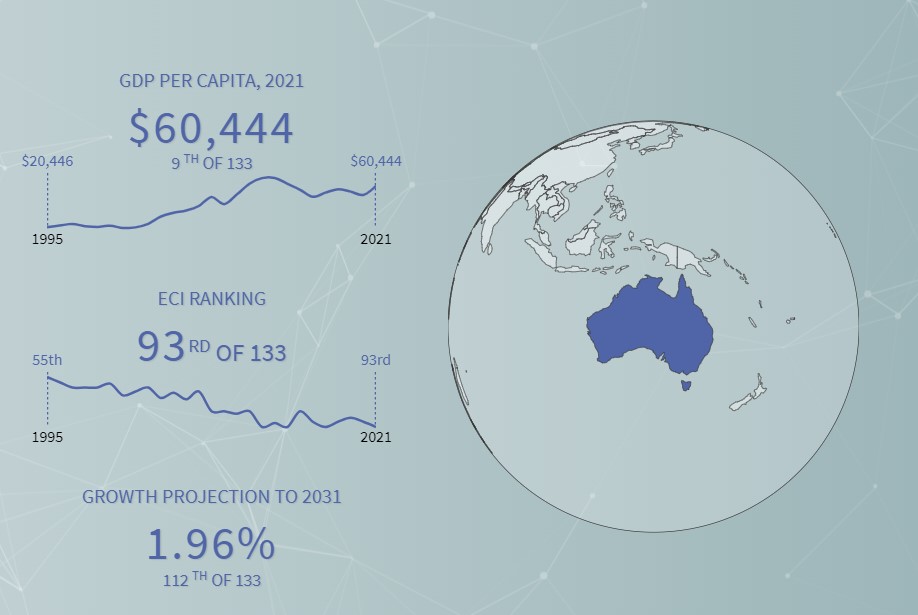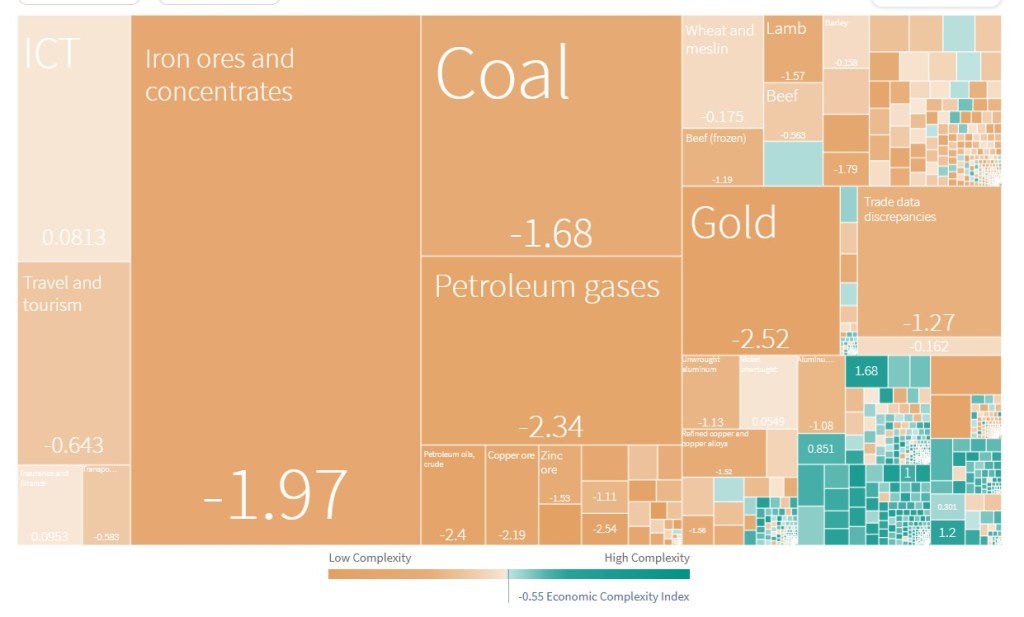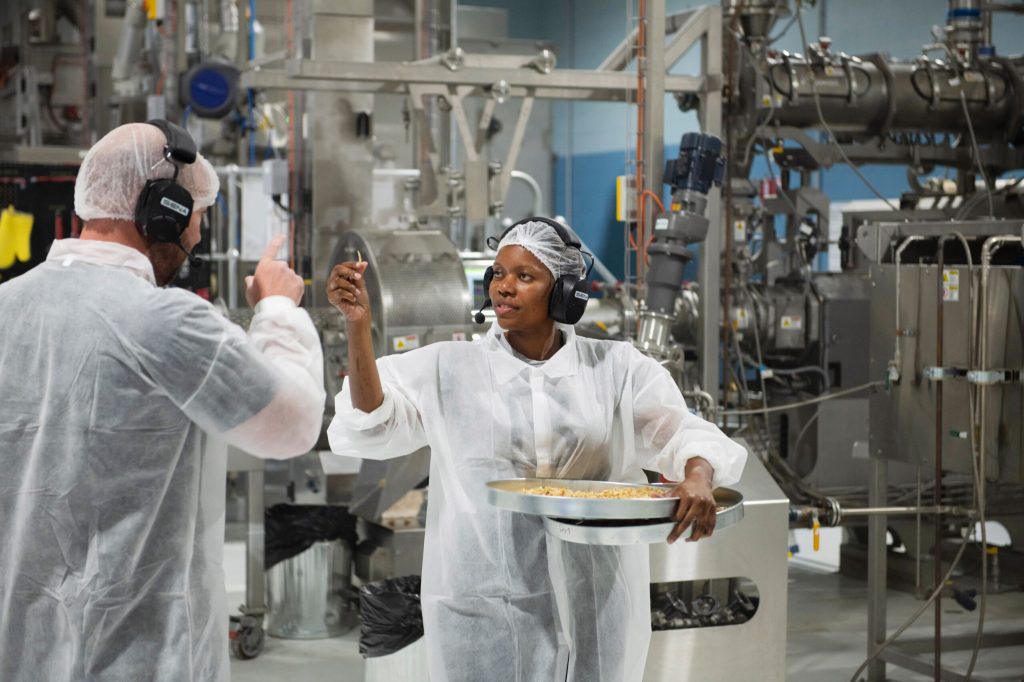In what the Advanced Manufacturing Growth Centre (AMGC) referred to as “completely predictable”, Australia remains the lowest ranking OECD nation when it comes to economic complexity, holding the 93rd position out of 133 countries.
Harvard Kennedy School’s Economic Complexity Index (ECI) ranks countries by their ability to manufacture and export diverse and complex items and services.
Sliding 12 positions in the past 10 years, and down from 55th place in 1995, Australia now sits between Uganda and Pakistan in the bottom third of monitored nations. This is despite Australia having the 9th richest economy per capita of the countries studied.

Jens Goennemann, managing director of the AMGC, said it’s crucial that Australia starts focusing on value-add manufacturing.
“Australia’s continued fall in ECI ranking is completely predictable. If this is to change, then we must focus on transitioning away from a luck-based economy to becoming smarter if we are to protect our high standards of living and prosperity into the future.
“We have the human capital, abundant natural resources, and capable yet subscale manufacturers … We must invest now while the times are good to ensure that we have a robust manufacturing industry making the high value, highly complex items the world needs to weather future bad times and to give our children meaningful and resilient jobs,” he said.

According to the report, Australia’s low ranking is due to its reliance on exporting “low and moderate complexity products, particularly ores, slag and ash and mineral fuels, oils and waxes products.”
“Australia is less complex than expected for its income level,” the Index reads. “As a result, its economy is projected to grow slowly. The Growth Lab’s 2031 Growth Projections forsee growth in Australia of two percent annually over the coming decade, ranking in the bottom half of countries globally.”
The alt protein opportunity
Simon Eassom, executive director of Food Frontier, Australia and New Zealand’s alternative protein think tank, said alternative protein technologies are a great example of value-adding and advanced manufacturing, and represent an incredible opportunity for the Australian economy.
“It is vital for the future of Australia’s agricultural sector that food manufacturing is supported and the appropriate investments made to grow Australia’s exports into Asia. Countries such as Singapore and the UAE, with more vulnerable food supply chains and a dependence on imports, are rapidly investing in alternative protein production.

“Australia could lead the charge in supplying processed ingredients for not only its thriving plant-based meat industry but also for international food manufacturers. There are 25 Australian-owned plant-based meat companies and 14 Australian start-ups working in the cellular agriculture space … With the right support and investment in infrastructure, the potential to boost Australia’s manufacturing capacity is boundless. Embracing this opportunity would not only benefit our own economy but also position us as global leaders in sustainable food production.”
Harvest B is an Australian company creating plant-based protein ingredients, and its co-founder and CEO, Kristi Riordan (pictured below, left), has long advocated for Australia’s embracement of value-add manufacturing.
Traditionally, plant-based meat manufacturers have had to source their protein ingredients abroad, despite the input crops often being grown locally. In many cases, Australian crops are sent overseas for processing, and then bought back at a premium as finished consumer products.
It’s an unsustainable model, both environmentally and economically, Riordan said.
“As policymakers, business leaders and stakeholders, we need to take action to diversify our economic landscape by investing in high-potential industries that will drive innovation, create jobs, and elevate Australia’s position in the global market, and the alternative proteins industry stands at the forefront of this transformation.
“As a sustainable and environmentally friendly industry, alternative proteins rely heavily on cutting-edge technologies, including plant-based innovations, cellular agriculture and advanced processing methods. The alternative proteins industry represents an exceptional opportunity for Australia to achieve economic complexity and address multiple pressing challenges simultaneously – with new value-add, export opportunities in agri-food, high paying jobs and more affordable, nutritious food.”
Listen to our podcast episode with Riordan below.
To stay up-to-date on the latest industry headlines, sign up to Future Alternative’s enewsletter.
Posted on:


